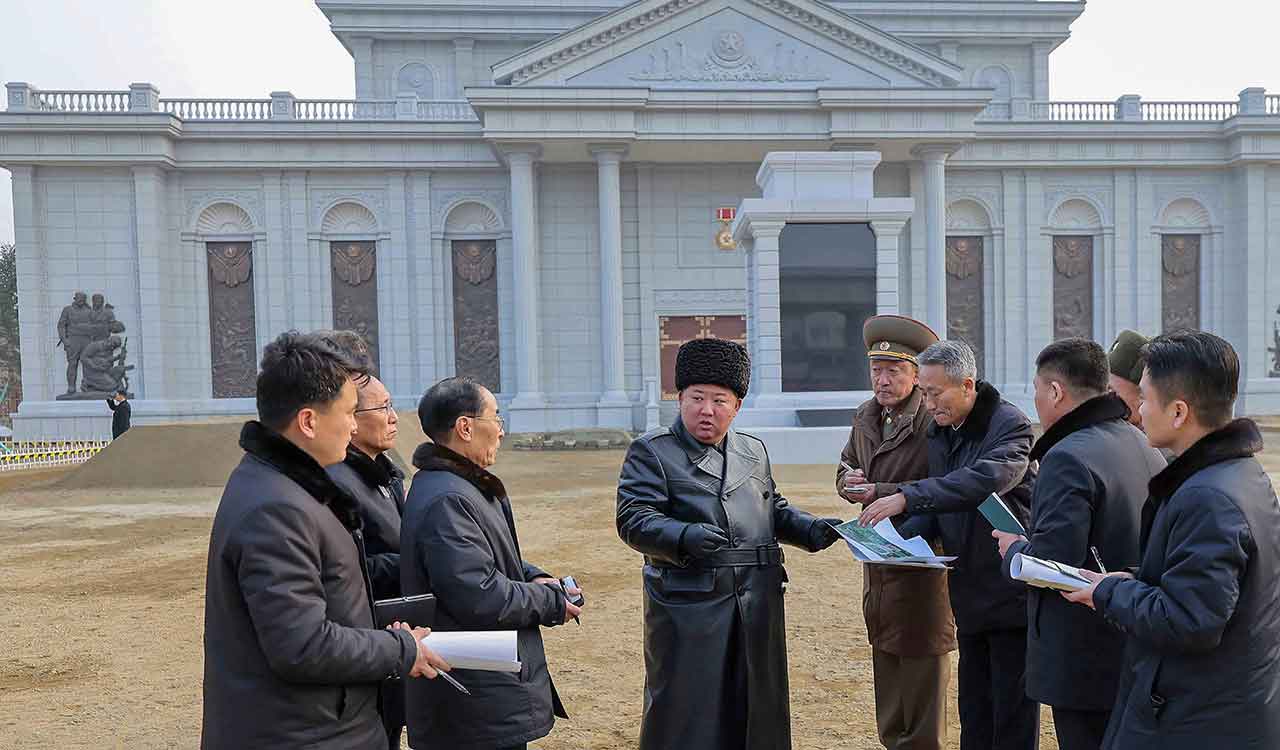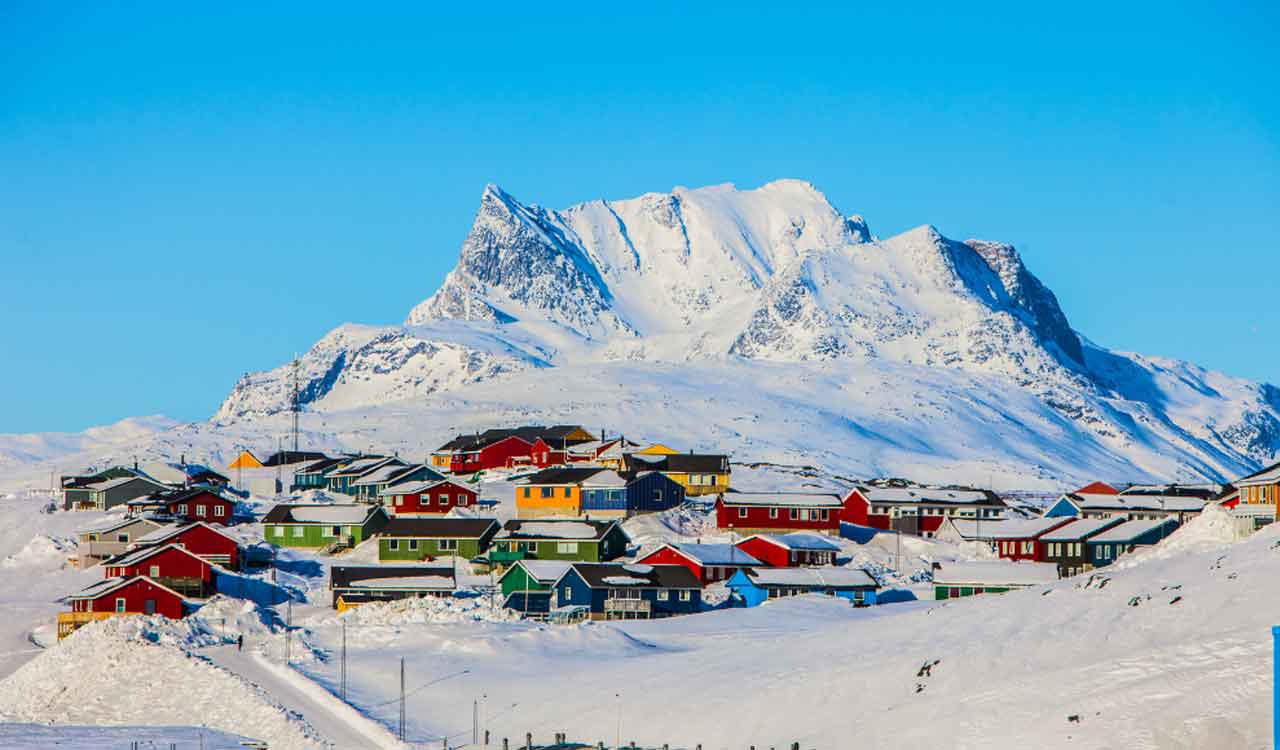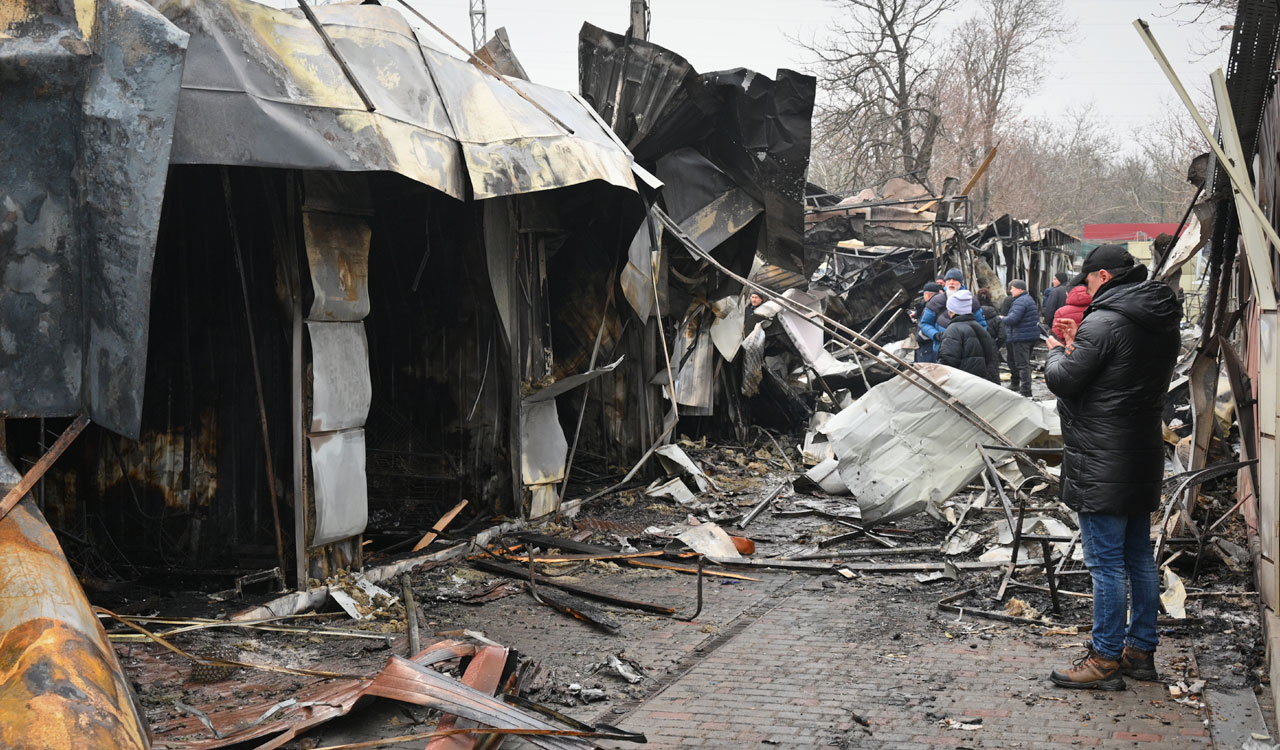War over Peace
By Dhananjay Tripathi Europe is considered a central region, both in theoretical and practical terms, when it comes to world politics. The history of Europe in this regard is quite intriguing. In fact, it will not be wrong to say that majority of the present day international system was initially shaped in Europe and later […]

By Dhananjay Tripathi
Europe is considered a central region, both in theoretical and practical terms, when it comes to world politics. The history of Europe in this regard is quite intriguing. In fact, it will not be wrong to say that majority of the present day international system was initially shaped in Europe and later exported to other parts of the world.
The most central concept in world politics, the ‘nation-state’, originated after the 1648 treaty of Westphalia. The two World Wars that changed the world order started in Europe. After the first World War (1914-1918), it was realised that lack of international law could lead to more considerable disturbance and thereby, the League of Nations (LoN) was established in 1920.
Although the LoN failed to live up to the expectations, Europe entered into another deadly conflict that ultimately spread to other regions as World War II (1939-1945). The loss of life and property in World War II shocked humanity. It was realised that there is a need for an international organisation that could act at the time of crisis, and that is how we got the United Nations.
Ukraine is considered as the “breadbasket of Europe”, and any instability will have severe consequences for the food market of Europe
Thus, the last two wars in Europe had international implications. That is why when Russia formally entered Ukraine, experts are worried as to what may happen if this conflict escalates. What provoked Russia is the question in the minds of everyone. The answer is not straightforward and calls for careful analysis.
Russia-Europe Relations: Apprehensions and Mistrust
We have to go back a little in the history of Europe to understand the present crisis. After the end of World War II, the European continent was divided into two camps. One was the liberal camp of West Europe, and the other was the socialist camp of East and Central Europe, primarily controlled by the Soviet Union. The West European countries realised the futility of war and conflict, formed a regional organisation and today, we all are aware of the economic success of the European Union (EU).
Nevertheless, western European countries always had apprehensions about the communist Soviet Union despite their prosperity. Wary about their security, Britain, France, Belgium, the Netherlands and Luxembourg came together in 1948 and formed a military alliance — The Western European Union (WEU). The WEU was considered a formidable alliance of European countries. Still, without help from the United States of America (USA), these countries would not counterbalance the Soviet Union. This is how they approached the USA and Canada, and finally, by involving a few other European countries, formed the North Atlantic Treaty Organization (NATO) in 1949.
To counter NATO, the Soviet Union, with countries of the socialist bloc, founded the Warsaw Treaty Organization in 1955. Thus, NATO, which has been discussed so much today in the Russia-Ukraine crisis, was precisely established during the Cold War to check the Soviet Union.
The Soviet Union collapsed in 1991 as it failed to keep up with the competition thrown by the liberal West. This disintegration of the Soviet Union led to 15 new States, including Russia and Ukraine. In his televised speech, the Russian President Vladimir Putin recently made a historical reference to Ukraine. In fact, he was pointing towards the communist past of Russia, the successor State of the Soviet Union.
After the disintegration of the Soviet Union, Russia was in desperate need of international support and looked towards the West. European countries, and the US, helped Russia, particularly in 1998 when Moscow was in a severe financial crisis. Russia also made efforts to improve its ties with the West leaving behind the past. Notably, according to a report of The New York Times published on 21 December 1991, then Russian President Boris Yeltsin wrote a letter to NATO, saying, “Russia hoped to join the alliance sometime in the future”.
European countries import almost 48% of their gas from Russia
In 1994, Russia joined the NATO Partnership for Peace programme, and the NATO-Russia Council was established in 2002. It had the mandate for cooperating on security issues, including participating in joint projects. This relationship got strained in 2014, when Russia annexed Crimea, and after this, NATO suspended all types of cooperation with Russia. Interestingly, Russia had a formal interaction mechanism with NATO, but the West never accepted it as its own and always maintained a distance.
Russian Problem with NATO
Russia has a history of engagement with NATO. The question also is that if NATO was the cold war organisation for countering the Soviet threat, why was it not dismantled like the Warsaw Treaty Organization.
Although, in 2022, it is difficult to doubt the relevance of NATO for the West, we need to remember it survived even when there was so much euphoria over globalisation. Before 9/11, all of us were continuously told by the liberal media that there is hardly any scope of political conflicts on ideological lines as the whole world is now following neo-liberal policies. Scholars like Francis Fukuyama had even prophesied that the disintegration of the Soviet Union is like the ‘end of history’.
After the arrival of Vladimir Putin to the centre stage of Russian politics (1999), Russia keeps expressing its discomfort with the expansion of NATO near its border. If one looks at the expansion of NATO, the concern of Russia could be discerned easily. Just take a quick look at NATO’s webpage looking at the expansion of the membership in the post-Cold War phase. The majority of the membership is to countries that were earlier either part of the Soviet Union or were members of the Warsaw pact. Last year, NATO showed interest in including three countries — Bosnia and Herzegovina, Georgia and Ukraine. Both Georgia and Ukraine were part of the former Soviet Union, and Moscow believes it is a ploy of the West to encircle it by giving NATO membership to these countries.
The Russia-Ukraine war could push inflation to “10 percent year over year driven in part by gas”, says consulting firm RSM
In the last few years, Russia has shown its assertiveness in world politics and is vehemently opposed to NATO’s expansion. Ukrainian President Volodymyr Zelenskyy in 2020 finalised the National Security Strategy to expedite the process for NATO membership. This angered Russian President Putin, who has shown no hesitation to challenge the West in the past. Putin is unwilling to accept that joining NATO is the sovereign decision of Ukraine.
To deter Ukraine from joining NATO, he first dismembered Ukraine by recognising the Donetsk People’s Republic (DPR) and the Luhansk People’s Republic (LPR), the two regions of Eastern Ukraine, on February 21. After that, on February 24, Russia declared a full-fledged invasion of Ukraine. It is believed that Russia will destroy the military facilities of Ukraine, leaving it weak and may also substantially control Eastern Ukraine directly or by declaring it as an independent State, thereby dividing Ukraine.
Is Western Response Inappropriate?
A general belief is that whatever is happening with Ukraine is due to its reliance on the West. We need to carefully analyse why the Western response is so measured and is still avoiding direct military confrontation.
According to the military strength of countries ranking of 2022 prepared by the Global Firepower, the US stands at number one, followed by Russia. A little deep into the data, one cannot see much difference in the quantity of military hardware of these two countries. Both the US and Russia are nuclear powers, but Russia has more atomic arsenals — active or otherwise. As per a report, Russia has 6,257 nuclear weapons, of which 1,458 are active, while the US has 5,550 nuclear weapons (1,389 active).
Thus a military confrontation between the two will not be like the US fighting the Taliban in Afghanistan. The scale of destruction in the case of Russia and the US fighting a war is beyond our comprehension. Even a limited war for a few days will leave a deep scar on the whole world. Moreover, a fight in a region like Europe will not stop quickly; it could take any course. The consequences of war will be dire for the entire humanity.
The Economic Cost
Can the world economy struggling with Covid afford a major war in Europe? Contraction in the banking sector’s business, rising unemployment and receding GDPs have burdened the world community. Within a few days of conflict, the crude oil prices in the international market jumped to over $105.
As per consulting firm RSM’s projection, the Russia-Ukraine war could push inflation to “10 percent year over year driven in part by gas”. The chief economist of RSM, Joe Brusuelas, told CNN that “an increase in oil prices to $110 could increase consumer prices by 2.8 percent over the course of a year”. Just imagine what will happen to economies like India that already face high inflation.
European countries import almost 48% of their gas from Russia. If this crisis leads to the breakdown of economic ties between Russia and Europe, it will adversely affect the gas price, and Europe has to think of alternative supply routes. Germany has already stalled the licensing process of the 1,200-km gas pipeline Nord Stream 2 that runs from St Petersburg to Lubmin in Germany. The total cost of constructing this gas pipeline is 10 billion euros. In Nord Stream 2, Russian Gazprom and European energy firms like Shell and ENGIE had shared the price.
Let us also not forget that Ukraine is considered as the “breadbasket of Europe”, and instability in such a country will have severe consequences for the food market of Europe. In short, the conflict between Russia and Ukraine is terrible for Europe and the world economy.
Solution?
It’s difficult to see any solution in the present context, and things may not settle down in the next few days. Diplomacy has to take over, but a lot depends on the positioning of Russia. No one at this point can rule out a possibility of a massive escalation despite its well-known consequences.
Russia has to show some maturity as it is difficult for NATO to invade or harm Russia. Similarly, some of the Russian concerns need to be addressed by the West. The most important is that the Russian force should leave Ukraine and restore its sovereignty. The issue is complex, but let us hope that it will get resolved soon.
Russian No to NATO
• After the arrival of Vladimir Putin to the centre stage of Russian politics (1999), Russia keeps expressing its discomfort with the expansion of NATO near its border
• A majority of the NATO membership is to countries that were earlier either part of the Soviet Union or were members of the Warsaw pact
• Last year, NATO showed interest in including three countries – Bosnia and Herzegovina, Georgia and Ukraine. Both Georgia and Ukraine were part of the former Soviet Union
• Ukrainian President Volodymyr Zelenskyy in 2020 finalised its National Security Strategy to expedite the process for NATO membership, which angered Putin
(The author is Senior Assistant Professor, Department of International Relations, South Asian University, New Delhi)
Now you can get handpicked stories from Telangana Today on Telegram everyday. Click the link to subscribe.
Click to follow Telangana Today Facebook page and Twitter .
Related News
-
Vaishnaw apologises for chaos at opening day of AI summit
27 mins ago -
Chairperson polls in three municipalities deferred again as Congress unleashes anarchy
45 mins ago -
25th batch of police canines, handlers pass out at IITA Moinabad
2 hours ago -
Kharge slams AI Summit management, alleges global embarrassment
3 hours ago -
PM Modi calls India AI Impact Expo 2026 powerful convergence
3 hours ago -
Writing code will not be main goal in AI era: Infosys Chairman
3 hours ago -
India contributes 16 per cent of world AI talent, white paper reveals
3 hours ago -
Kukatpally family conducts funeral after days of prayers for deceased
4 hours ago




